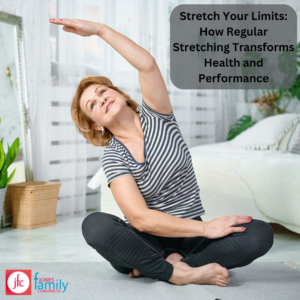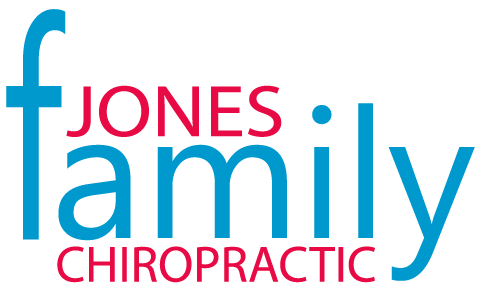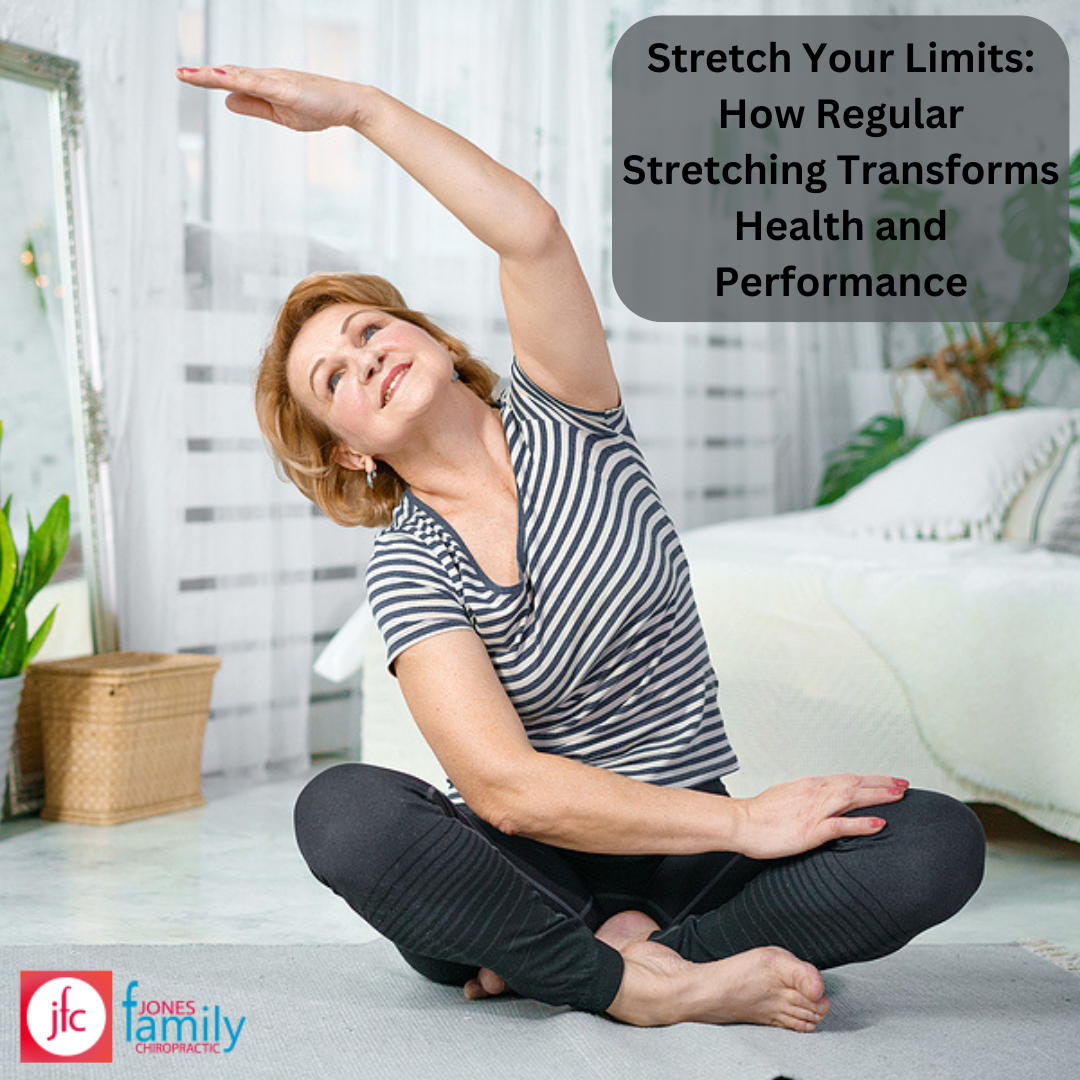When we talk about fitness, cardiovascular and strength exercises often come to mind. Keeping up with this level of exercise can sometimes be challenging, but we need to remember another vital fitness component- stretching. Including stretching in your daily regimen is a great strategy to develop and maintain optimal fitness and improve your athletic performance and overall health. Stretching involves elongating a muscle or muscle group to its entire length. Most times, we stretch without realizing it because stretching is a natural, instinctive behavior that our bodies naturally crave, especially after long periods of sitting or inactivity.
The Importance of Regular Stretching
Regular stretching offers numerous health and fitness benefits that include:
- Increases your flexibility
Flexibility helps us perform everyday activities with relative ease and helps delay the reduced mobility that can come with aging. Therefore, regular stretching increases your flexibility, which is crucial for overall health. Maintaining a regular stretching routine will keep you flexible and injury-free.
- Improves performance in physical activity
Do you ever wonder why athletes or gym instructors encourage you to perform dynamic stretches before physical activity? This is because stretches have been shown to help prepare your muscles for the activity.
- Helps to heal and prevent back pain
Tight muscles result in decreased range of motion, which increases the likelihood of straining the muscles in your back. Stretching can heal an existing back injury. Adopting a regular stretching routine can also help prevent future back pain by strengthening your back muscles and reducing your risk of muscle strain.
- Stress relief
Did you know that when you are experiencing stress, your muscles are likely tense? This happens because your muscles tend to tighten in response to physical and emotional stress. You can ease this by stretching and focusing on areas of your body where you tend to hold your stress, like the neck, shoulders, and upper back.
- Improves circulation
Regular stretching helps increase blood flow to the muscles, which helps nourish the muscles, eliminate waste byproducts from muscle tissue, shorten recovery time, and reduce muscle soreness.
- Promotes relaxation
Stretching feels good. It is an excellent way to cool down and relax after an engaging workout. Research further shows that stretching can lower blood pressure and improve artery function. This helps decrease tension, headaches and can also calm your mind. While you stretch, focus on mindfulness and meditation exercises, which give your mind a mental break.
Stretching techniques:
The two common types of stretching techniques include:
- Static stretches involve holding a stretch in a comfortable position for some time, usually 10 to 30 seconds. It is a form of stretching that is most beneficial after your exercise.
- Dynamic stretches include active movements that cause your muscles to stretch, but the stretch is not held in the end position. It is usually done before exercise to prepare the muscles for movement.
How to start a stretching routine
The good thing about adopting a stretching routine is that you can stretch at any time during the day.
On the days you exercise, you can add the following stretches:
- Aim for five to ten minutes of dynamic stretching before your activity
- Do another five to ten minutes of static stretching after your workout
On the days when you are not exercising, plan to schedule at least 5 to 10 minutes of time for stretching. When stretching, focus on the major areas of your body that help with mobility, like the quadriceps, calves, hip flexors, and hamstrings. For upper-body relief, try moves that stretch the neck, shoulders, and lower back.
Whether new to exercise or a seasoned athlete, you can benefit from a regular stretching routine. If you need further guidance on developing a stretching routine, consult Dr. Jason Jones at our Chiropractic office in Elizabeth City, NC.

Podcast: Play in new window | Download






